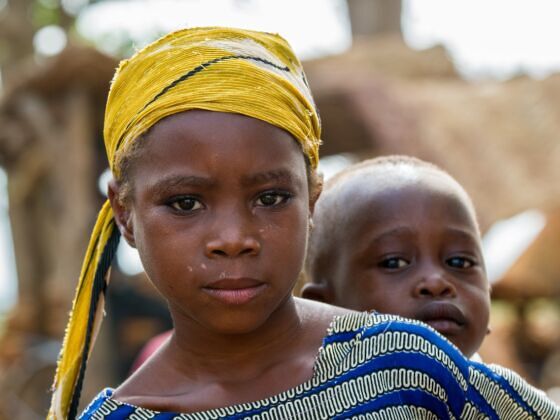A Liberian Life
“Reeeed Oil!” If we were up early enough I caught a glimpse of the oil man swinging past our front door, with translucent reddish chilli oil piled high in plastic bottles balanced perfectly on his shapely head. He never once stopped at our door in the five months I lived in the Buduburam Refugee camp, but his distinctive nasal call conjured the taste of the fiery mix every time he sang his trade. In 2006 the camp, situated 40km West of Ghana’s capital Accra, was home to 42,000 West African refugees and a myriad of extraordinary personal narratives.
